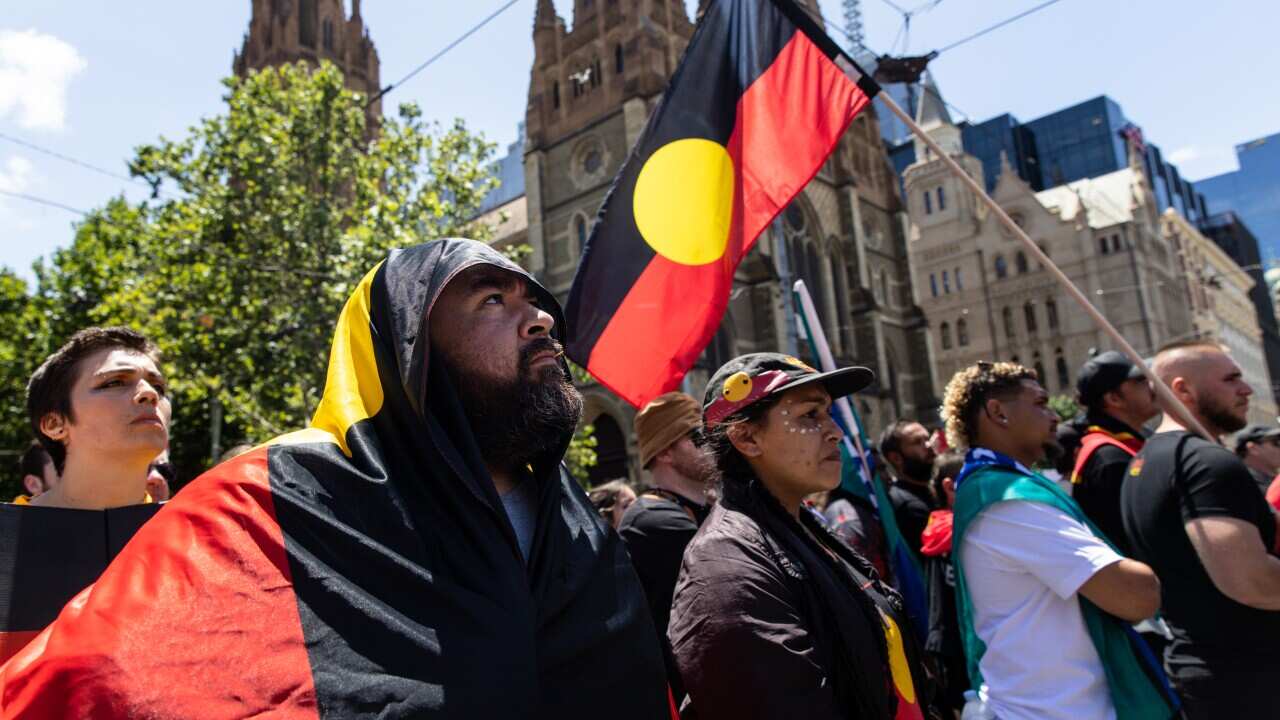The political rhetoric behind Aboriginal self-determination is just that: Rhetoric! And this year’s rugby league State of Origin series is a perfect example of why, as we have seen, yet again, a statement from our elite players in resisting the hegemony of the state in the from of its racist national anthem falling on deaf ears.
Before this year's series kicked-off, fans of the game were surprised to read that the NRL had chosen to abandon the performance of Australia’s national anthem, Advance Australia Fair, as part of the pre-game ceremony.
The story was first reported by The Daily Telegraph's rugby league senior writer, Phil 'Buzz' Rothfield, just before midday on October 29.
Over an hour later, the after Independent Commission Chairman Peter V’landys received a phone call from Scott Morrison where it is the anthem needed to be re-instated because after a "year of heartbreak it has never been more important" to sing it.
A year of heartbreak! For whom? A year of heartbreak pales into insignificance to the generations of heartbreak, trauma, and loss our mob have had to endure before and after their ‘national anthem’ .
Our State of Origin Indigenous players were making a stand to refute a song that held no meaning to them or their families, because it did not represent as culturally different and distinct peoples.
Advance Australia Fair symbolises the invader’s sovereignty and right to be here despite the illegalities of . As an anthem it expresses dispossession, greed, and a ‘White Australia’ and the current PM once again took the usual political route to repress an act of Indigenous self-determination to rid ourselves of a symbol of tyranny.
This is not the first time that the pre-game ritual has been contested.
Several players in both the New South Wales and Queensland State of Origin sides chose to boycott singing of the anthem before each match of last year’s series. Players such as Cody Walker, Josh Addo-Carr, Will Chambers and Latrell Mitchell were very public in and its lyrics.
In a recent for the Journal of Media and Cultural Studies, Associate Professor and proud Indigenous woman Doctor Chelsea Bond, alongside her co-authors Bryan Mukandi and Shane Coghill, explores the history and meaning behind silent protests against the Australian national anthem .
Dr Bond establishes that the second line of the anthem in particular – “for we are young and free”– is both contradictory and ignorant of Australia’s problematic past in relation to Indigenous affairs. She states that “the act of singing about being ‘free’ would be both absurd and obscene for Blackfullas in Australia.”
That sentiment was also evident before the All Star’s match earlier this year, when the driving force behind the Indigenous All Stars concept, Preston Campbell, said that a lot of Indigenous community’s struggle with that line as they still
Expecting Indigenous Australian’s to sing about being “young and free” is expecting them to forget centuries of ancestral history and oppression. Is this really advance Australia “fair”?
The tradition of singing a racist anthem before games is only the surface to a pool of deeply rooted problems within the NRL and Australian sport in general. These players would not be protesting if there was no issue to protest, thus we must look at the prolific trend of racism and racial abuse within our nations sporting codes.
Last year, Latrell Mitchell NRL fans, saying that he had “had enough of casual racism.” As in Mitchell’s case, players are now subject to abuse not only on the pitch, but also on social media. This exposes a whole other avenue of issues, providing people with endless platforms to recite their hate speech.
You only need to look at of AFL star Adam Goodes to understand how significant the effect of racism can be in the lives of Indigenous athletes. The 2014 Australian of the Year recipient was driven out of his career after suffering mental health issues due to ongoing racial abuse, both on and off the field.
The from the Wallabies to not take a knee during the national anthem at the Bledisloe Cup completes the trifecta for our football codes. Although the team will be wearing an Indigenous jersey, coach Dave Rennie has received considerable backlash after claiming that taking a knee would be too bold of a “political statement.”
Considering these incidents are just a selection of many, it is evident that racial abuse within the Australian sporting sphere is still extremely prevalent. So, what are we going to do about it?
Lee Sheppard is a proud Djirribal woman and anthropologist who is currently completing her PhD at the University of Queensland titled ‘Sport for development: privatised aid and Aboriginal sport in Australia.
Clare Adcock is an undergraduate Journalism and Communications Student at the University of Queensland, School of Communication and Arts.










